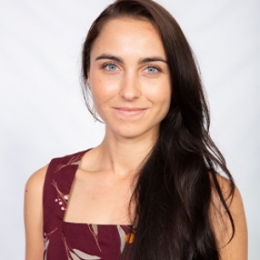Treatment for alcohol use disorder often not perceived as 'helpful': WHO survey analysis
Fewer than half of people with alcohol use disorder who received professional help perceived their treatment as helpful.
Fewer than half of people with alcohol use disorder who received professional help perceived their treatment as helpful.

A new study analysing data from the World Health Organisation (WHO) World Mental Health surveys in 24 countries has explored how many people with alcohol use disorder seek treatment, and if so, whether they found it helpful.
In the study published this month in Drug and Alcohol Dependence, the researchers from UNSW Sydney’s National Drug and Alcohol Research Centre (NDARC) found that among 93,843 respondents surveyed, 9.5 per cent had a lifetime alcohol use disorder and among those, 11.8 per cent reported ever obtaining treatment for the disorder. Of those receiving treatment, just under half (44 per cent) reported that treatment was helpful.
Alcohol use disorder (AUD) is a mental disorder defined by the Diagnostic and Statistical Manual of Mental Disorders Version IV as including two distinct disorders, alcohol abuse and alcohol dependence, with specific criteria for each.
Study author Ms Chrianna Bharat, Research Associate at NDARC, said the level of perceived helpfulness observed in this study was far lower for alcohol use disorders than for other mental disorders.
“There are many reasons for these differences. In comparison to treatment for mental disorders, treatment for substance use disorders is often far less well resourced. There are also significant issues around stigma and accessibility of treatment for substance use disorders that are likely far greater than those for mental disorders,” she said.
Around one in five (21.8 per cent) of survey responders said they found treatment helpful from the start, i.e., from the time they saw the first professional.
The study also found that persisting in seeking treatment, despite having received unhelpful treatment, was important in increasing the likelihood of receiving helpful treatment.
“Among those who sought help from up to seven health professionals, 79.7 per cent would receive helpful treatment. However, only 13.2 per cent of those ever seeking treatment persisted in seeing up to seven professionals,” said Ms Bharat.

Study author Chrianna Bharat. Photo: NDARC
People with alcohol use disorder in low and middle-income countries were half as likely to obtain helpful treatment as those in high-income countries. In Australia, although fewer than half of treatment seekers perceived treatment as helpful (39.8 per cent), overall rates of treatment seeking were slightly higher (15.5 per cent).
“It is important that future research sheds light on ways in which to increase the likelihood that treatment is found to be helpful on any given contact, rather than requiring persistence through multiple attempts on the client’s behalf. Investigating new treatment options as well as improving our capacity to provide successful, tailored approaches to AUD treatment could be helpful in this regard,” said Ms Bharat.